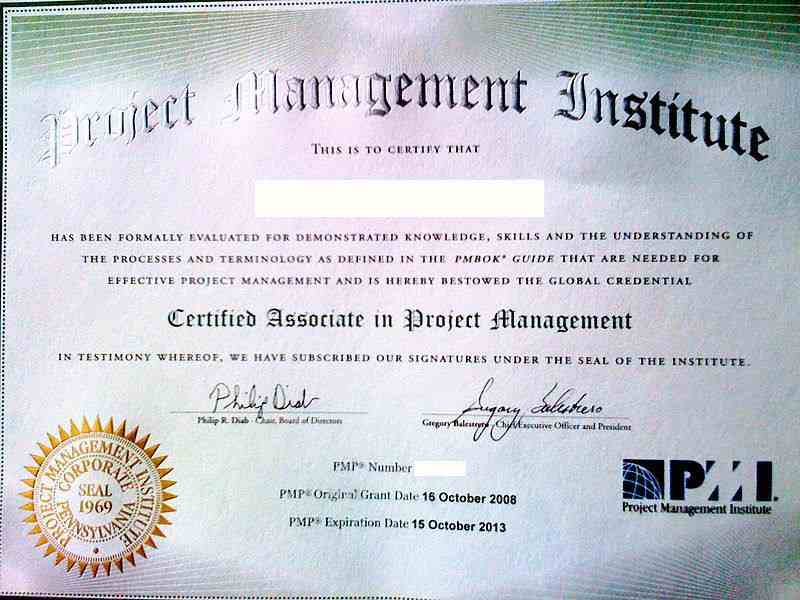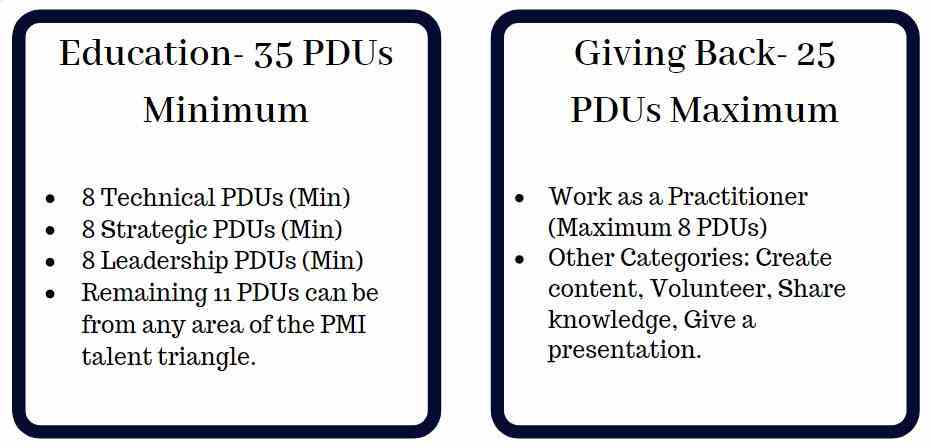6 easy steps to kickstart your career as a Project Manager
Does taking complete ownership of a project attract you?
Do managing deadlines, crunching numbers and motivating your team get you going?
And does having a rewarding career entice you?
If you nodded 'Yes' to any of the above, you'd be a great fit for a project management career.
According to the Project Management Institute,
"By 2027, employers will need nearly 88 million individuals in project management-oriented roles. China and India will represent more than 75 percent of the total project management-oriented employment.
Source: PMI (2017). Project Management Job Growth and Talent Gap 2017–2027.
This article will help you understand how to become a project manager. The skills required, the suggested path we recommend and the training involved.
And finally, we'll also share tips on how to get hired as a project manager.
Let's start with the basics first.
You may also like: 10 Essential Skills of a Project Manager: What are they and why are they important?
What is a Project Manager
A quick google search will throw a range of definitions: all well-meant and close to correct.
Here's what a project manager is:
"A project manager is accountable for planning, operating and closing the project within deadlines and costs while also managing the team and keeping them motivated. In a nutshell, (s)he is a professional who handles the success or failure of a project".
This means a project manager is an excellent leader, strategist, communicator, and a hands-on worker-all at the same time.
Here's an elaboration of the roles and responsibilities of a project manager and the qualities (s)he must have or be willing to develop.
- A project manager works in a team. (S)He's not only a great team leader but also an ideal team worker. Someone who understands the diverse ideas, cultures, and attitudes of her/his team members and brings them together to work on a common goal.
- A project manager is a stickler for discipline and not compromising on the scope of a project. (S)He ensures her/his team always adheres to project goals, deliverables, costs, and deadlines.
- (S)He is the face for the client and if anything goes wrong, takes all the brickbats from her/him. (S)He is also happy to share all the bouquets with the team.
- (S)He is not afraid to give tough love to her/his team and yet, mentors them and keeps them motivated.
- A project manager is also very analytical. (S)He understands and interprets data and can use it to make meaningful decisions.
- (S)He is proactive and is quick to address challenging situations before they occur.
- A project manager also has an excellent grasp on technology. (S)He can roll up her/his sleeves and transition from a leader to a worker.
All this sounds difficult, doesn't it?
Granted, a project management career is challenging. And yet, it's also one of the most gratifying roles in a corporate industry.
One that brings respect, authority and monetary rewards.
A project manager is a member of an elite club with an exclusive membership. A club, not every working professional can enter.
So, interested in learning how to become a project manager?
Here are 6 steps to help you on your way to having a super successful project management career:
1) Assess your skills

Source: www.pexels.com
Time management, discipline, good communication, work experience, academic performance. All these matters. You obviously cannot do anything about your school grades now, but I highly suggest you enhance your soft skills (even if you think you're already good!).
One of the most critical skills you'll need to succeed as a project manager are strong personal organizational skills. If you can manage yourself efficiently, you'll have a huge head start over others. Your organizational prowess will help you develop other habits and skills.
So start by making an honest inventory of your strengths and weaknesses. Sharpen your existing expertise. Read books and take extra classes. Learn and develop the skills you currently lack.
And then move to the second step.
2) Explore Formal certifications

Source: www.pexels.com
You can become a project manager in your company by gaining more experience. But, a certification in this field has now become essential. A stamp of approval from a renowned authority helps a new employer judge your knowledge. For your current employer, it reinforces your value in the company.
There are several project management certification courses out there. Each has different requirements and merit in the industry.
Project Management Professional is the most popular certification. It's preferred by folks with significant working experience. Various sectors across the globe accept PMP and it's the most recognized certification.
Projects In Controlled Environments or Prince2 is another project management certification. Prince2 is generally preferred in Europe, Australia and UK regions over other certifications. It differs in its methodology with PMP.
The Certified Associate in Project Management is unique and doesn't need any experience to take its exam. So if you are new and aspire to be a successful project manager, the CAPM certification may be ideal for you.
Most project managers agree that the above certifications complement each other, even with varying knowledge bases and methodologies,
Once you decide which project management certification is best for you, it's time to start studying for it.
3) Starting your project management training

Source: www.pexels.com
PMI chapters and official education partners are present across the world. They offer help or formal training for various project management certification courses.
Most education partners provide training in several formats: in person, live online classes and self-learning mode.
Based on your schedule, you should choose one of the above options. Also, it's a good idea to talk to the institute, check their reviews and get feedback on them from your colleagues.
Make sure to develop a study schedule and write a lot of practice tests. Like other competitive exams, one of the best ways to learn is forming a support group with fellow project management aspirants. This will also gain you a great networking circle later on.
4) Take the test

Source: www.pexels.com
Depending upon the certification, you can take the test online or in an official testing center. The exams are in a multiple choice format and have one correct answer for three incorrect options.
The results for online tests come out as soon as you complete the exam, so there are no anxious moments for you. The Project Management Institute also gives an evaluation of your proficiency levels. The score report tests you in core subjects in project management as below:
- Above Target
- Target
- Below Target
- Needs Improvement
But, if you're giving a paper-based test, you'll have to wait around a month for your score and test results to arrive.
5) Preserve your certification

Source: https://commons.wikimedia.org
If you've passed the exam, congrats! You're now part of an exclusive group that only the brightest and the best can be a member of. Now you can rest easy, right?
For now, yes.
But you cannot rest on your laurels for long. It's not enough to pass the exam. The project management field is dynamic. And you have to maintain your certification by keeping your knowledge updated.
As a CAPM, you need to take the exam every five years before the completion of the current certification cycle.
Prince2 has its own procedure to maintain its certification.
If you are a PMP, you need to complete professional development units (PDUs) every year to have your certification in good standing.
In brief, this is how you earn PDUs:

6) Refresh your resume

Source: www.pexels.com
You now have an impressive score and a shiny, prestigious certification. Show it off on your resume and proudly highlight it on your Linkedin profile. Tell your management team about your new expertise and discuss new roles and responsibilities with them.
If that isn't an option, consider applying to a project manager job in your dream company, one that you always wanted to work with. Trust us, the industry requires and values project management professionals and will always be happy to talk to you.
Be aggressive in networking with fellow project managers on social media and forums. Help your peers in the project management circle. Generously share your knowledge and best practices. Don't be shy to ask for help whenever you need one. They'll always remember you. You can never know when an opportunity arises and from whom.
Conclusion:
There you have it. How to become a project manager in 6 steps. Simple, but not easy.
It needs a lot of dedication and hard work to assess your current skills, make time to learn for the project management certification and to keep updating yourself with the latest in the field. And of course, you have to market yourself well once you are certified.
Project Management is a difficult and exciting responsibility-one that requires you to constantly learn and implement several professional and soft skills in your work environment.
It is challenging but worth pursuing the valuable learning and rewards that come with it.
This is why a good training institute is valuable in guiding you to every step towards a successful Project Management career.
Click here to kickstart your Project Management Career
